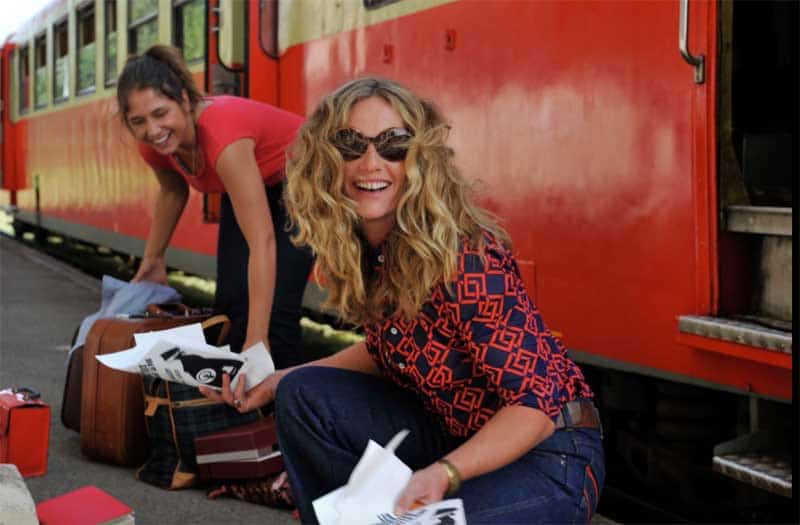Summertime (La belle saison) is a French film about a lesbian romance set in the 1970s. In Paris women were fighting for equality and change, while in the countryside things remained as they had always been. There are spoilers ahead.
This difference in social attitude was illustrated with the story of two women. Carole (Cécile De France) was a teacher from Paris on the forefront of the women’s movement. Delphine (Izïa Higelin) was a farm woman who escaped to Paris for a few months.
The two women met at a women’s meeting. Delphine, a closeted lesbian, fell for Carole immediately. Carole lived with a man and initially rejected Delphine. But not for long. When Carole fell for Delphine, she fell hard. They formed a passionate bond.

These two had just long enough to fall in love in the freedom and heady feminism of Paris. Then Delphine received word that her father Maurice (Jean-Henri Compère) was ill. She returned home to work the family farm.
The farm, in the Limousin region of France, was in a beautiful, idyllic setting. The land was verdant and green with abundant harvests.
Carole left her boyfriend behind and burned her bridges with him to follow Delphine. Delphine’s mother (Noémie Lvovsky) welcomed her at first, thinking she was a friend.
Carole began working on the farm with Delphine, helping like a hired hand. She brightened up the place with music and dancing. Carole slept in a spare bedroom, which Delphine sneaked into at night and left early in the morning.
Even though Delphine took pains to keep her relationship with Carole hidden, people noticed.
Antoine (Kévin Azaïs), the man Delphine’s mother wanted her to marry, helped bring home Delphine’s father from the hospital. It didn’t take him long to see Carole and Delphine kissing in the kitchen when he came to the farm to help with something. Others noticed, too.
Delphine’s mother finally realized what was going on under her nose when she found Carole and Delphine sleeping naked in Carole’s bed. Delphine’s mother told Carole to leave her house. Delphine packed up and went with her, but couldn’t go through with it. Delphine returned to the farm, knowing she would remain closeted.
Carole returned to Paris brokenhearted.
Flash forward 5 years. Carole is working in Paris in an abortion clinic. She is living with a woman. She receives a letter from Delphine saying she has her own small farm and is working it herself. They obviously still cared for each other, but remained in their different worlds.
Some people might regard this as a tragic tale. I looked at it more as a story of first love. The relationship between Carole and Delphine was doomed from the first, but it was an important milestone for both of them.
Carole had the good fortune to live in Paris where attitudes were more open and accepting. Delphine dwelled in a tight-laced, traditional world. She might have left it behind, but the draw of family and working the land was too strong. She lacked the courage to be open about her sexuality with the people in her conservative world.
As a lovers’ dilemma, theirs was a fine one. It was tied to the times, social events, change, feminism, and movements for civil rights. It’s no longer the 1970s, but a similar dilemma faces many LGBTQ people today. Even after all these years, it isn’t easy to be who you are everywhere in the world.
Overall, Summertime (La belle saison) was beautifully filmed. Even though the outcome of the relationship was predictable, the story was lovingly told. The film was, of course, completely French with regard to sex and nudity.
Summertime (La belle saison) was directed by Catherine Corsini. Catherine Corsini and Laurette Polmanss share writing credits.

Leave a Reply